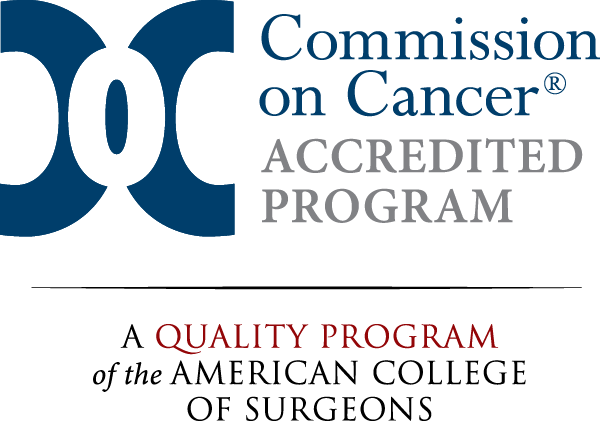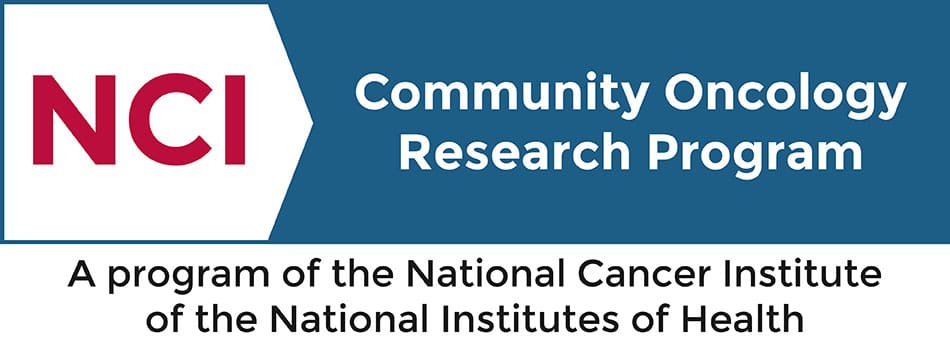As a leader and advanced provider of cancer treatment delivered by some of the most experienced medical professionals, Capital Health Cancer Center is focused on you and helping you throughout your journey – and that starts with educating you about risk factors, signs and symptoms, treatment options, and prevention.
Learn more about some of the most common types of cancer below and how to make sure you receive the best care.
Risk Factors
Determining exactly why a person gets cancer is not possible. It’s not yet known why one person develops cancer and another doesn’t. However, there are general risk factors that can increase a person’s chance of developing cancer. These general risk factors for cancer include:
- Age
- Personal or family history of cancer
- Exposure to certain chemicals, radiation, certain viral illnesses such as HPV, tobacco, or alcohol
- Obesity
Family History
Your family history can tell doctors a lot when it comes to cancer risks. In fact, one of the main causes of cancer is by genetic mutation. Gene mutations can be either inherited or acquired. You can better understand your risk by doing a genetics cancer risk assessment. A certified counselor can help you determine if you should do a simple blood or saliva test. Learn more about genetic testing here.
Exposure to Chemicals and Other Substances
Certain chemicals and substances are known as risk factors for cancer. You can reduce your risk by limiting your exposure to these substances, such as alcohol, tobacco, and processed foods.
Symptoms of Cancer
Screening for cancer is important because early stages of cancer can be free of symptoms/asymptomatic. Some general signs that may suggest cancer are listed below. If you have any concerns, you should always contact your doctor.
- Unexplained weight loss
- Fever
- Fatigue
- Pain of unknown origin
- Skin changes
- Sores that do not heal
- Change in bowel habits or bladder function
- Thickening or lump in body parts
- Indigestion or trouble swallowing
- Changes in appetite
Stages of Cancer
The process of determining how much cancer is in a person’s body is called staging. Tests will be run and findings will be analyzed to determine the patient’s cancer stage, which describes the size of the tumor and where it may have spread in the body.
When discussing your diagnosis, your doctor or nurse may describe it as one of these stages:
- Stage 0: Abnormal cells are present but have not spread to nearby tissue.
- Stages I, II, III: Cancer is present and the higher the number, the larger the cancer tumor and the more it has spread.
- Stage IV: Cancer cells have spread to distant parts of the body.
Your doctor will be sure to explain in more detail what these stages mean and what treatment options you have.
Treatment Options
Comprehensive cancer centers like Capital Health’s Cancer Center offer specialists who are experienced in the latest techniques and evidence-based cancer treatments. When diagnosed, a multi-disciplinary care team will consider all treatment options and recommend a personalized treatment plan for you based on your cancer type, the cancer stage, and other factors. Treatment may involve one or a combination of therapies or treatments including surgery medical oncology (chemotherapy), and/or radiation therapy.
When deciding where to receive your treatment, take the following into consideration:
- Accreditations validating the provider meets national standards
- Access to doctors specializing in your type of cancer
- How close to home the facility is to you
- Availability of advanced technology, such as robotic assisted surgery and CyberKnife®
- Whether or not treatments are done in the same facility as doctor visits
- Support services
- Whether or not they offer comprehensive care
Your doctor and health care team will work with you every step of the process — from diagnosis through treatment, recovery and survivorship. You should feel comfortable asking questions about procedures, risks, expected outcomes and the course of treatment so that you can make an informed decision on your best course of treatment.
Cancer can be complex. But with the right treatment plan and health care provider you can be confident about effectively treating your specific situation.
Surgery
At Capital Health Cancer Center, our highly skilled surgeons are the region’s leading experts in cancer surgery. Traditional surgery or minimally invasive, robotic-assisted surgery are options depending upon your situation. Capital Health Medical Center — Hopewell has achieved accreditation as a Center of Excellence in Robotic Surgeryby Surgical Review Corporation for having met rigorous standards for delivering safe, effective, evidence-based care and confirming our unique expertise and surgical capabilities.
As a Center of Excellence in Robotic Surgery, the da Vinci® surgical system allows surgeons to perform robotic-assisted surgery through small incisions. The system seamlessly translates the surgeon’s hand, wrist, and finger movements into precise, real-time movements of surgical instruments. This type of surgery generally offers patients less risk of infection, shorter hospital stays, faster recoveries, quicker returns to normal daily activities, and less scarring than traditional surgery.
Chemotherapy
Chemotherapy is a type of cancer treatment that uses drugs to target cancer cells. Your doctor will help you understand how it works against cancer, how to manage possible side effects, and how it is used with other cancer therapies. It is typically administered through pills or an IV drip in an infusion center, and it can be very effective against certain types of cancer.
Radiation Therapy
The goal of radiation therapy is to use high doses of radiation directed at destroying cancerous cells while sparing your normal, healthy cells. It uses beams of high doses of intense radiation to kill cancerous cells and tumors so as to prevent the cancer from growing. It destroys the genetic material that controls how cancer cells grow and divide and can be used to stop or sometimes to slow down cancer growth and to shrink tumors. Radiation, like chemotherapy, may have side effects, but also like chemotherapy, it is very effective in treating cancer.
CyberKnife® Radiosurgery System, one of the world’s most accurate radiosurgery device is used as a noninvasive alternative for cancer patients as well as other medical conditions.
Cancer Prevention
There are actions you can take that may help prevent cancer, such as screenings. Genes, lifestyle and the environment may affect your likelihood of developing cancer.
Because early detection matters, understanding your risks and getting screened are also important. Screening methods vary for each type of cancer. Your physician will recommend the one that best fits your situation.
Because treatment methods work best in the earliest stages of cancer, those who fall in a higher-risk category may need more frequent screening. In some cases, you can perform simple tests yourself in the comfort of your own home. For example, checking your own breasts for lumps is widely recommended as a good first step in breast cancer prevention. To review current recommendations or to schedule a screening, click here.
Making healthy choices in your everyday life can also reduce your risk of cancer, like maintaining a healthy weight, avoiding tobacco, and limiting processed foods. In addition, your skin is your biggest organ, so stay protected from sun rays by wearing and reapplying SPF daily, and stay covered with clothing for cancer prevention.
Vaccines can also help lower cancer risk, such as the human papillomavirus (HPV) vaccine that many receive to prevent most cervical cancers and several other types. The hepatitis B vaccine is also a well-known vaccine to help lower liver cancer risk.
Types of Cancer
There are many different types of cancer but some are more common and prevalent today than others. Learn more about the various types of cancer below. For a more extensive list, visit us here.
Gastrointestinal and Digestive Cancer
Gastrointestinal cancers refer to your gastrointestinal tract (GI tract) and digestive organs, including the esophagus, stomach, biliary system, pancreas, liver, gallbladder, small intestine, large intestine, rectum and anus. Often cancer is not detected until later stages as symptoms can be general or masked, with the most common of those being esophageal, stomach, pancreatic, liver, colon, and anal cancer are the most common.
Symptoms may include any of the following:
- Abdominal (belly) pain
- Abdominal swelling
- Nausea and vomiting
- Feeling full after eating only a small amount of food
- Loss of appetite
- Weight loss
- Problems swallowing (for tumors in the esophagus)
Colorectal cancer is often referred to as “colon cancer” or “rectal cancer” depending on where it originates. Most colorectal cancers start as polyps— growths on the inner lining of the colon or rectum, most of which are benign or non-cancerous. If a polyp becomes cancerous, it can grow into the wall of the colon or rectum over time. Colonoscopies are the best way to screen for colon cancer.
Certain risk factors have been shown to increase a person’s chance of developing colorectal cancer, including being overweight, diets high in red meat and processed meats and low in fiber, as well as smoking and heavy alcohol use.
A gastroenterologist can provide a risk assessment and colonoscopy. Treatment methods generally include surgically removing the tumor or cancerous parts of the colon, radiation, and/or chemotherapy.
Prostate
Prostate cancer is a disease in which cancer cells form in the tissues of the prostate — a gland in the male reproductive system located below the bladder and in front of the rectum. While some prostate cancers grow quickly, most grow slowly and there may not always be noticeable symptoms associated. Men are screened, or tested, for prostate cancer in an attempt to find cancer before symptoms appear.
Screening tests include:
- Prostate-Specific Antigen Blood Test: This is a blood test that measures the amount of prostate-specific antigen, a protein made by cells in the prostate gland, in units called nanograms per milliliter (ng/mL). The chance of having prostate cancer goes up as the PSA level goes up, although there is no set cutoff point that can tell for sure if a man does or doesn’t have prostate cancer.
- Digital Rectal Exam (DRE): This is a test where the doctor feels inside the rectum for any bumps or hard areas on the prostate that might be cancer. Prostate cancers often begin in the back part of the gland, and can sometimes be felt during a rectal exam. While a DRE is less effective than the PSA blood test in finding prostate cancer, it can sometimes find cancers in men with normal PSA levels.
- Biopsy: If someone has a high PSA test, a biopsy may be necessary as it is the only way to determine if prostate cancer is present. During this procedure, small samples of the prostate are removed and then looked at under a microscope. This test is the only way to know for sure if a man has prostate cancer.
If after tests, doctors find prostate cancer, there are a number of treatment methods available.
Breast cancer is the most common type of cancer affecting American women. While both men and women can develop breast cancer, it affects one in eight women who live to the age of 80, as reported by cancer.org.
While having a family history of breast cancer may put you at a higher risk of developing breast cancer, it is important to note that only 5-10 percent of breast cancers are actually hereditary. The majority of those diagnosed have no known family history of breast cancer, therefore routine imaging and maintaining a healthy lifestyle is of the utmost importance.
The earlier breast cancer is detected, the less likely the cells have traveled to other parts of your body. Therefore, knowing your risk and obtaining routine mammograms is key in detecting breast cancer early.
Gynecologic cancer is the group of cancers that affect female reproductive organs. The five main types of gynecologic cancer include cervical, ovarian, uterine, vaginal and vulvar. Common symptoms include vaginal bleeding, abnormal discharge, and pelvic pain or pressure.
Because gynecologic cancer can be difficult to diagnose as symptoms don’t always appear, regular screenings and tests are recommended.
Human papillomavirus (HPV) is considered the primary cause of most cervical cancer and the cause in some cancers of the vulva, vagina, penis, anus, back of the throat, tongue, and tonsils. A pap test is used to screen for cervical cancer and an HPV test looks for the virus.
The HPV vaccine has been shown to be effective in providing protection against infections and pre-cancers caused by certain types of HPV. It is recommended for girls and boys around 11-12 years of age.
Lung
Lung cancer can go undiagnosed because typically there are no symptoms or perhaps symptoms such as a chronic cough may be attributed to other health issues. Many people with lung cancer do not have symptoms until the disease is in its later stages. Symptoms may present themselves differently in each person.
Lung cancer screenings are quick, easy and painless. A specialized form of X-ray known as a low-dose computed tomography commonly known as a “CT Scan,” takes about 10 seconds and provides cross-sectional images in great detail.
Capital Health treats all types of lung cancers, including non-small cell lung cancer (NSCLC) and small cell lung cancer (SCLC). Their names are based on their appearance under the microscope. Each grows differently and requires different treatment modalities.
Brain
When cell mutations occur in the brain, they can cause brain tumors. Tumors can be malignant (cancerous) or benign (non-cancerous). Brain cancer can also occur when cancer in other parts of the body migrates to the brain.
Neuro-oncology surgery is one of the most common treatment methods for brain cancers, where surgeons operate on the nervous system to remove the tumors from the brain. Other treatment methods include chemotherapy and radiation therapy.
Leukemia/Lymphoma
According to the Leukemia and Lymphoma Society, leukemia begins in a cell in the bone marrow. The cell undergoes a change and becomes a type of cancerous leukemia cell. Once the marrow cell undergoes a leukemic change, the leukemia cells may grow and survive better than normal cells. Over time, the leukemia cells crowd out the development of normal cells. The rate at which leukemia progresses and how the cells replace the normal blood and marrow cells are different with each type of leukemia.
Understanding more about leukemia and lymphoma may help you live many long years, even after diagnosis.
What You Can Do
Knowing your risk factors and early detection are key to detecting cancer early when it is most treatable. Being proactive in your health is important. Capital Health provides patients with a network of experienced physicians specializing in specific cancers, who are trained in the most complex oncology issues. To learn more or to schedule an appointment, click here or call 609-537-6363.



